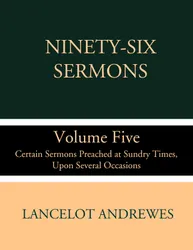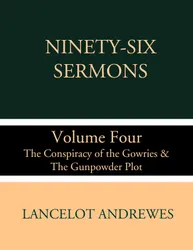The text has been carefully reprinted from the second edition published in 1631, and it has throughout been collated with the editions of 1641 and 1661; but with the exception of a few verbal inaccuracies and obvious misprints, which have been corrected, it has not been deemed advisable, or indeed found necessary, to make the slightest alteration either in the style or in the arrangement of the author.
Much labour has been bestowed upon the marginal references to Scripture, many of which were found on examination to be exceedingly erroneous, and it soon became apparent that unless they were revised throughout, the reader would experience no ordinary difficulty in discovering the passages to which he was directed. They have accordingly been submitted to a rigid scrutiny, and the result has been such, that the editor is led to hope but few inaccuracies have escaped his observation. It must however be borne in mind, that in many cases the reference to Scripture is very slight, and almost imperceptible without the aid of the Vulgate, where a word or a phrase appears to have attracted the Bishop’s attention, and to have been marked by him more from its allusion, than from its actual relation, to the passage in question. Indeed, one or two instances might be named, where the allusion is so slight as to be scarcely traceable, but even here it has not been thought advisable to remove the reference; it is suffered to remain as it is found without alteration. But besides these, there are other instances, and those not a few, where quotations from Scripture occur without any reference whatever. Here however, in all cases of the least importance, the reader is referred to the sacred author quoted, and whenever this has been done, the reference itself is inclosed in brackets, to shew that for it the present editor is himself responsible.
The editor regrets that he has not been equally successful with all the quotations which are given from the Fathers, and other writers. Wherever any reference whatever is given to any part of their works, it has invariably been sought out and verified, but sometimes, where a Father of the Church is merely cited by name, and no particular Treatise is mentioned, it has been found impossible to discover the passage, especially where the quotation is made from such voluminous writers as Augustine and Chrysostom, and the sentiment is such as might have been expressed by a Christian writer of almost any age and country. In all cases however of importance, where the citation is not used merely by way of illustration, but in support of some primitive doctrine or usage, the greatest pains have been taken to find the passage, and in scarcely any instance of this nature has the result been otherwise than successful. It may be added, that when the exact passage quoted cannot with certainty be ascertained, the reader is occasionally referred to a parallel sentiment from the same author, which may perhaps after all have been the passage intended.
With respect to the quotations generally, and particularly those from Scripture, it will be found that they are scarcely ever given in the exact words of the author referred to, but that the sense or substance of a passage is for the most part rather quoted from memory, than given with that exactness which is usual in the present day This remark will be found to apply not merely to English, but to Latin and Greek quotations, and it would perhaps be difficult to point out many instances to the contrary.
The quotations from Scripture, whenever they appear to amount to more than a passing allusion, are distinguished by double commas, while translations from the Latin, with the exception of those from the Vulgate, are marked as semi-quotations, and are invariably distinguished by single ones.
CrossReach Publications



